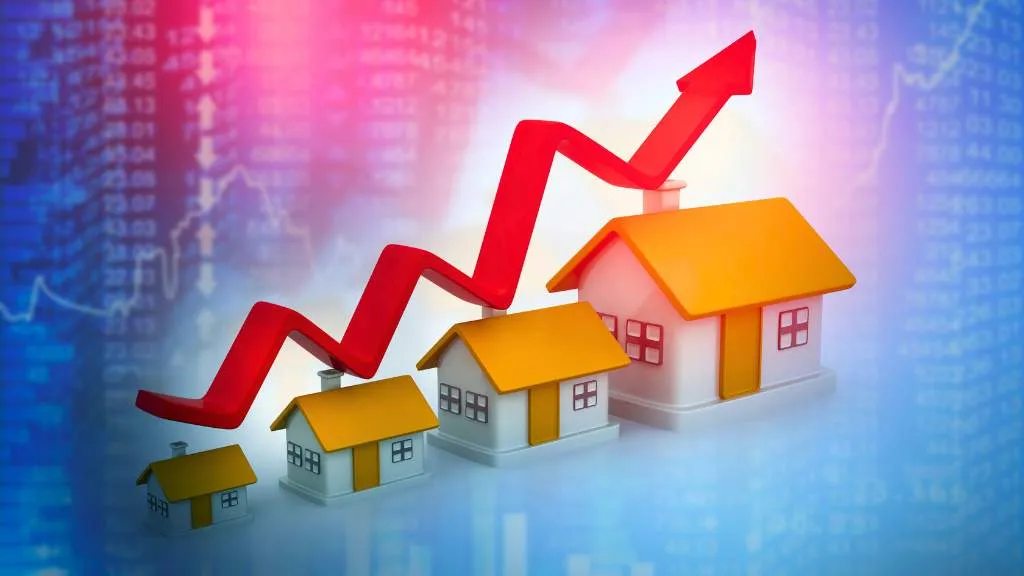
As we navigate through 2025, the real estate market in India is evolving rapidly, driven by shifting consumer preferences, technological advancements, and economic factors. Understanding these real estate trends can help investors, homebuyers, and industry professionals make informed decisions. Here’s a deep dive into the top real estate trends in India for 2025, including a closer look at Bangalore real estate trends and the future of real estate in India.
10 Key Real Estate Trends in India for 2025
1. Rise of Smart Homes and Tech Integration
The integration of smart technology in residential properties is no longer a luxury but a necessity, reflecting significant real estate trends. Homebuyers are increasingly demanding smart homes that feature advanced technology for automation, security, and energy efficiency. Key elements such as smart lighting systems, climate control mechanisms, and sophisticated security setups are becoming standard in new developments.
This shift towards incorporating smart technology highlights a broader movement within real estate trends towards modern living solutions that offer enhanced convenience and sustainability. As these technologies become more affordable, they are poised to redefine the real estate landscape across India, setting new standards for residential comfort and efficiency.
Here are some key points driving this trend:
- Energy Efficiency: Smart homes slash utility bills with automated lighting and climate control, ensuring optimal energy use and a smaller carbon footprint.
- Enhanced Security: Smart locks, surveillance cameras, and remote monitoring systems offer unparalleled peace of mind.
- Convenience and Comfort: Control your home’s lighting, temperature, and appliances with a tap on your smartphone or a simple voice command.
2. Sustainable and Green Buildings
Sustainability is at the forefront of the real estate trends in India. Developers are increasingly focusing on eco-friendly building practices and green certifications. The demand for buildings that minimize environmental impact through energy-efficient designs, renewable energy sources, and sustainable materials is growing.
Green buildings not only appeal to environmentally conscious buyers but also offer long-term cost savings through reduced energy consumption. This trend highlights a shift towards a more responsible approach to real estate development.
Here are some key points driving this trend:
- Energy-Efficient Designs: Modern buildings now feature smart insulation, natural lighting, and advanced ventilation—cutting costs and carbon footprints.
- Renewable Energy Sources: Solar panels and wind turbines are transforming homes into green powerhouses, slashing energy bills.
- Use of Sustainable Materials: From recycled steel to bamboo, eco-friendly materials are becoming the norm, promoting a healthier living environment.
3. Urbanization and Revitalization of Urban Areas
Urbanization is a major driver of current real estate trends, with a concentrated effort on revitalizing urban areas. Cities across India are investing heavily in infrastructure enhancements, public transportation improvements, and comprehensive urban renewal projects. This focus aims to tackle the challenges posed by rapid urban growth and elevate the quality of life in city centers.
Key aspects of these real estate trends include the redevelopment of obsolete industrial zones and the transformation of underutilized spaces into dynamic residential and commercial hubs. These efforts reflect a commitment to creating more livable, functional, and sustainable urban environments in response to evolving demands.
Here are some key points driving this trend:
- Infrastructure Improvements: Modern roads and utilities make urban living smoother and more accessible, boosting the appeal of city centers.
- Public Transportation: Expanded metro systems and efficient buses make city commutes quicker and greener, enhancing urban mobility.
- Urban Renewal Projects: Transforming old industrial zones into vibrant residential and commercial hubs breathes new life into cityscapes, creating dynamic living spaces.
4. Growth of Remote Work and Suburban Living
The remote work revolution is significantly shaping real estate trends in India, driving a surge in demand for homes in suburban and semi-urban areas. With more professionals adopting flexible work arrangements, there is a notable shift from congested city centers to more spacious, serene suburban environments.
This trend is particularly pronounced in cities like Bangalore, where the need for well-connected suburban properties is increasing. Suburban living offers a harmonious balance between convenient access to urban amenities and the peaceful, relaxed lifestyle of suburban settings. These evolving real estate trends reflect a broader desire for more adaptable and comfortable living spaces in response to changing work patterns.
Here are some key points driving this trend:
- Space and Serenity: Enjoy larger homes and peaceful surroundings away from the hustle and bustle of city life.
- Better Value: Get more bang for your buck with spacious suburban homes offering more features at a lower cost than city apartments.
- Community and Lifestyle: Suburban areas often have tight-knit communities and offer a lifestyle that’s perfect for families, with parks, schools, and recreational facilities aplenty.
5. Increased Focus on Health and Wellness
Health and wellness are increasingly central to real estate trends in India, reshaping residential design and development. Modern residential projects now prominently feature amenities such as fitness centers, wellness spaces, and expansive green areas that support a healthy lifestyle.
This focus on well-being is driven by a growing recognition among developers of the importance of creating environments that enhance both physical and mental health. As a reflection of broader societal shifts, these real estate trends underscore a commitment to integrating health-focused features into residential spaces, catering to a demand for healthier living conditions.
Here are some key points driving this trend:
- State-of-the-Art Fitness Centres: On-site gyms with the latest equipment make staying fit convenient and enjoyable.
- Wellness Spaces: Meditation rooms, yoga studios, and spa facilities offer residents a holistic approach to health and relaxation.
- Green Living: Lush gardens, jogging tracks, and open green spaces provide a breath of fresh air and a natural escape right at your doorstep.
6. Affordable Housing and Government Initiatives
The Indian government continues to prioritize affordable housing, a key element shaping the future of real estate in India. Initiatives like the Pradhan Mantri Awas Yojana (PMAY) aim to address the housing needs of lower and middle-income groups, making quality homes more accessible. This strategic focus supports broader homeownership goals and drives inclusive development, fundamentally influencing the evolving real estate landscape in India.
Here are some key points driving this trend:
- Government Subsidies: Financial aid and subsidies make homeownership more attainable for many families, turning dreams into reality.
- Inclusive Development: Affordable housing projects are being developed in well-connected areas, ensuring residents have access to essential amenities and services.
- Boost to Local Economy: The surge in affordable housing projects stimulates local economies, creating jobs and fostering community growth.
7. Luxury and High-End Real Estate
Despite the emphasis on affordability, the luxury real estate market in India remains vibrant and resilient. High-net-worth individuals are increasingly drawn to premium properties featuring exclusive amenities and bespoke designs.
This ongoing demand for luxury homes in prime locations highlights a significant segment of the market that continues to thrive. As we look at the future of real estate in India, the focus on advanced technology, superior quality, and personalized features in high-end properties is set to drive continued growth in this sector, reflecting its critical role in the broader real estate trends.
Here are some key points defining this trend:
- Exquisite Designs: Luxury homes boast unique architectural styles and custom interiors, catering to the tastes of the elite.
- Elite Amenities: From private pools to state-of-the-art home theaters, high-end properties offer unparalleled luxury and comfort.
- Prime Locations: The demand for luxury real estate remains high in prestigious locales, offering both exclusivity and prestige.
8. Bangalore Real Estate Trends: Technology and Innovation
Bangalore, often dubbed the “Silicon Valley of India,” is witnessing transformative Bangalore real estate trends driven by its flourishing tech sector. The city is seeing a surge in demand for tech-integrated residential properties, cutting-edge office spaces, and mixed-use developments that combine living, working, and recreational areas.
This shift underscores Bangalore’s evolution into a key destination for technology professionals and entrepreneurs. As a result, the future of real estate in Bangalore looks promising, with an emphasis on incorporating advanced technologies and sustainable practices into new developments. These trends reflect a broader move towards creating smart, adaptable, and eco-friendly real estate solutions in the city.
Here are some key points shaping this trend:
- Tech-Savvy Homes: Demand for smart homes with the latest tech features is soaring, reflecting Bangalore’s digital edge.
- Innovative Spaces: From futuristic office spaces to versatile mixed-use developments, innovation drives the city’s real estate evolution.
- Sustainable Living: Bangalore offers a perfect blend of modern conveniences and natural charm, making it ideal for retirees. For those seeking a peaceful and eco-friendly retirement, consider options like Swasya Living on the city’s serene outskirts. Here, you can enjoy cultivating your garden and basking in nature’s beauty while benefiting from Bangalore’s excellent amenities and green initiatives.
9. Emergence of Real Estate Investment Trusts (REITs)
Real Estate Investment Trusts (REITs) are increasingly emerging as a prominent investment option in India, aligning with current real estate trends. REITs allow investors to gain exposure to a diversified portfolio of real estate assets, offering both liquidity and consistent income streams.
This growth in REITs signifies a shift towards more professionalized and structured real estate investment opportunities. By enabling investors to access high-quality real estate assets without the need for direct property ownership, REITs are opening new avenues for participation in the real estate market, reflecting broader trends towards increased investment sophistication and accessibility.
Here are some key points to note:
- Diversified Investment: REITs allow you to own a slice of various real estate assets without the hassle of managing them yourself.
- Steady Income: Enjoy regular income through dividends from rental properties, giving you a reliable cash flow.
- High Liquidity: REITs are traded on stock exchanges, making it easy to buy and sell, offering more flexibility compared to traditional property investments.
10. Focus on Enhanced Customer Experience
Enhancing the customer experience is becoming a central focus for real estate developers, in line with current real estate trends in India. Developers are leveraging advanced technologies and practices to streamline the homebuying process. This includes virtual property tours, online booking systems, personalized services, and robust customer support.
By investing in these innovations, developers aim to provide a seamless, user-friendly experience for both buyers and investors. This trend underscores the importance of a customer-centric approach in the competitive real estate market, ensuring that the process is efficient, transparent, and tailored to individual needs.
Here are some key points:
- Virtual Tours: Explore properties from your couch—virtual tours make home shopping convenient and immersive.
- Seamless Booking: Online booking systems streamline the buying process, making it as easy as clicking a button.
- Personalized Support: Tailored customer service ensures every buyer feels valued and informed throughout their journey.
Conclusion
As we look ahead to 2025, the real estate trends in India reflect a dynamic and evolving market. From the rise of smart homes and sustainable development to the growth of remote work and suburban living, these trends are shaping the future of real estate in India. Understanding these trends can help investors, homebuyers, and industry professionals navigate the changing landscape and make informed decisions. Whether you’re interested in the latest Bangalore real estate trends or broader market developments, staying informed is key to capitalizing on opportunities in the real estate sector.
Top Real Estate Trends in India FAQs:
1. What is the emerging real estate market in India in 2025?
2. Tech Hubs: Cities such as Bangalore, Hyderabad, and Pune continue to attract significant real estate investments driven by the booming tech industry.
3. Affordable Housing: There is a growing demand for affordable housing projects across various urban and suburban areas.
2. What is the value of the real estate market in India?
2. Growth Projections: The market is expected to grow significantly, driven by urbanization, increasing household income, and supportive government policies.
3. What is the future growth of real estate in India?
2. Affordable Housing: Government initiatives like Pradhan Mantri Awas Yojana (PMAY) will drive the growth of affordable housing.
3. Technological Integration: The adoption of smart technologies and sustainable practices will redefine real estate development.
4. Investment Opportunities: Increased foreign direct investment (FDI) and the rise of Real Estate Investment Trusts (REITs) will fuel growth.
4. What is the forecast for real estate in India?
2. Commercial Sector: Expansion driven by the IT/ITES sector, co-working spaces, and e-commerce.
3. Retail Sector: Growth supported by increasing consumer spending and organized retail penetration.
4. Infrastructure Development: Enhanced infrastructure projects, such as smart cities and urban renewal programs, will positively impact the market.






